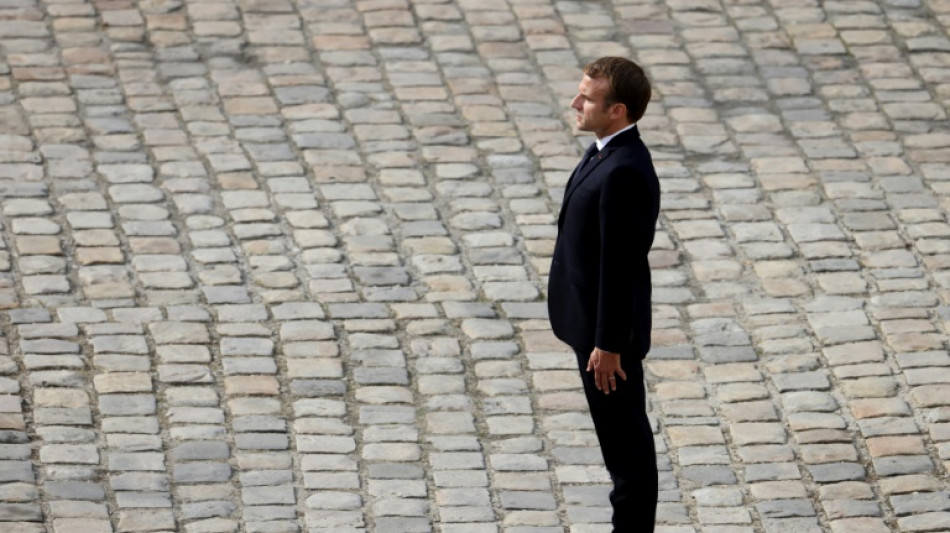
-
 Nicaragua says quitting UNESCO over press prize award
Nicaragua says quitting UNESCO over press prize award
-
Oscar Piastri wins Miami Grand Prix to lead McLaren one-two
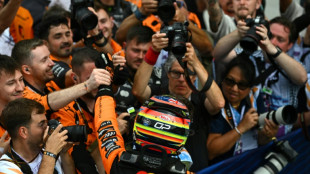
-
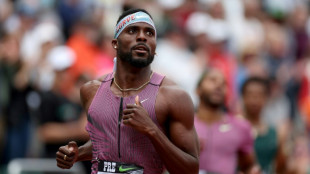 Bednarek runs this year's world-best 200m to win at Miami Grand Slam
Bednarek runs this year's world-best 200m to win at Miami Grand Slam
-
'Lucky number seven' for Ruud after beating Draper to clinch Madrid Open
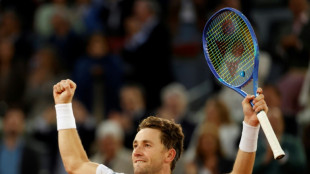
-
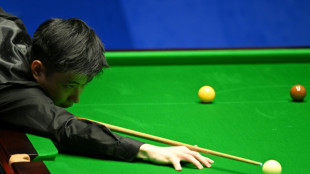 China's Zhao leads Williams 11-6 in world snooker final
China's Zhao leads Williams 11-6 in world snooker final
-
Far-right candidate tops Romania's presidential rerun

-
 Ryu takes wire-to-wire win at LPGA Black Desert Championship
Ryu takes wire-to-wire win at LPGA Black Desert Championship
-
Marseille held by fellow Champions League hopefuls Lille

-
 'Lonely' Palou cruises to win at IndyCar Alabama Grand Prix
'Lonely' Palou cruises to win at IndyCar Alabama Grand Prix
-
Zelensky says does 'not believe' Russian truce pledge
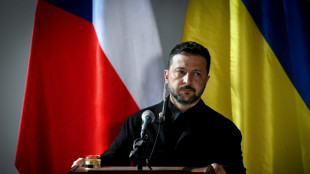
-
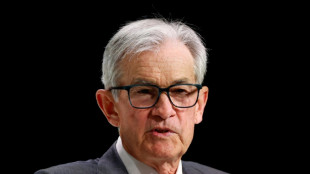 US Fed expected to pause rate cuts again, await clarity on tariffs
US Fed expected to pause rate cuts again, await clarity on tariffs
-
Ruud beats Draper to win Madrid Open and claim maiden Masters
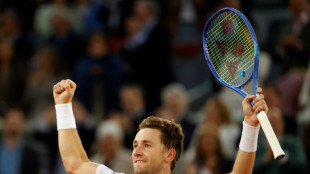
-
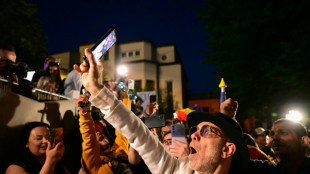 Far-right candidate leads Romania's presidential rerun
Far-right candidate leads Romania's presidential rerun
-
Parag's six sixes in a row, Pant flops in IPL

-
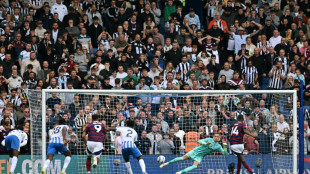 Howe hails Newcastle's 'ruthless' Isak after VAR drama in Brighton draw
Howe hails Newcastle's 'ruthless' Isak after VAR drama in Brighton draw
-
Pant woes continue as Lucknow lose to Punjab in IPL

-
 'Thunderbolts' strikes big, topping N.America box office
'Thunderbolts' strikes big, topping N.America box office
-
Kompany player-led shake-up returns Bayern to Bundesliga summit
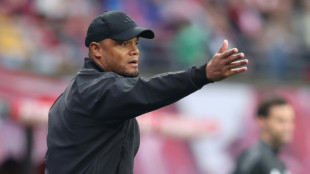
-
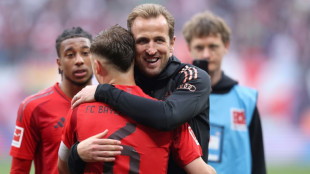 Leverkusen draw hands Kane's Bayern Bundesliga title
Leverkusen draw hands Kane's Bayern Bundesliga title
-
Chelsea sink champions Liverpool, Man Utd crash at Brentford

-
 Bielle-Biarrey lifts Bordeaux past Toulouse and into Champions Cup final
Bielle-Biarrey lifts Bordeaux past Toulouse and into Champions Cup final
-
Chelsea beat champions Liverpool to boost top five push

-
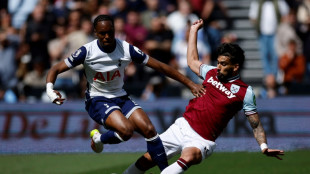 Hammers' Potter reveals Paqueta's tears of frustration at Spurs draw
Hammers' Potter reveals Paqueta's tears of frustration at Spurs draw
-
Lyon's Champions League hopes hit by loss to Lens

-
 Israel vows retaliation against Iran, Yemen's Huthis over airport attack
Israel vows retaliation against Iran, Yemen's Huthis over airport attack
-
Man Utd 'need to change' after Brentford loss: Amorim

-
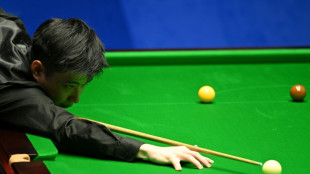 China's Zhao dominates Williams 7-1 in first session of World Snooker final
China's Zhao dominates Williams 7-1 in first session of World Snooker final
-
Zelensky says does 'not believe' Russian truce promises
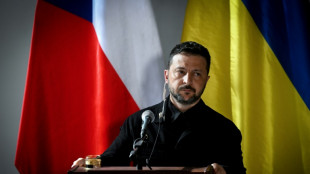
-
 Bielle-Biarrey double lifts Bordeaux past champions Toulouse and into Champions Cup final
Bielle-Biarrey double lifts Bordeaux past champions Toulouse and into Champions Cup final
-
Trump says 'I don't know' if must uphold US Constitution as president
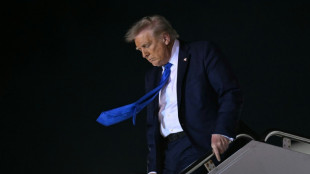
-
 Brazil police foil Lady Gaga gig bomb plot
Brazil police foil Lady Gaga gig bomb plot
-
Godolphin in full bloom as Desert Flower wins 1000 Guineas

-
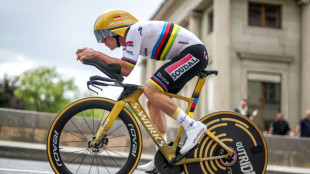 Almeida wins Tour de Romandie as Evenepoel claims closing time-trial
Almeida wins Tour de Romandie as Evenepoel claims closing time-trial
-
Bolsonaro leaves hospital three weeks after abdominal surgery

-
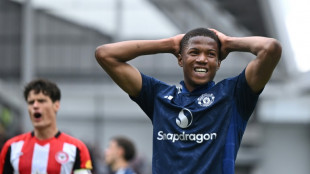 Man Utd crash at Brentford, Isak rescues Newcastle
Man Utd crash at Brentford, Isak rescues Newcastle
-
Romanians vote in tense presidential rerun as far right eyes win

-
 Lyon see off Racing to set up Challenge Cup final against Bath
Lyon see off Racing to set up Challenge Cup final against Bath
-
Kolkata survive Parag's six-hitting blitz to clinch IPL thriller
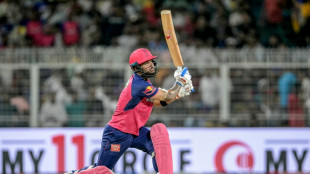
-
 Israel vows retaliation against Yemen's Huthis over airport attack
Israel vows retaliation against Yemen's Huthis over airport attack
-
Mbappe maintains Real Madrid Liga dream in Celta thriller

-
 UNESCO says Nicaragua quitting over press prize award
UNESCO says Nicaragua quitting over press prize award
-
Church donation box goes digital in Greece
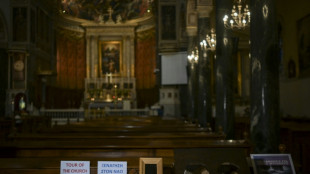
-
 Germans mark liberation of Ravensbrueck Nazi camp
Germans mark liberation of Ravensbrueck Nazi camp
-
Missile hits Israel airport area in Huthi-claimed attack

-
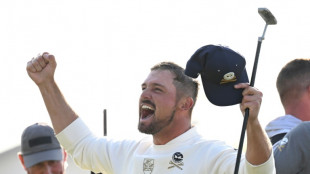 DeChambeau eyes PGA Championship battle after South Korea LIV win
DeChambeau eyes PGA Championship battle after South Korea LIV win
-
Chinese president to visit Russia on May 7-10: Kremlin
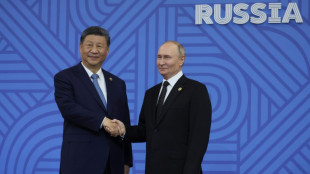
-
 'We don't care': weddings go on in Pakistan's Kashmir border
'We don't care': weddings go on in Pakistan's Kashmir border
-
Missile hits Israel airport area in attack claimed by Yemen's Huthis

-
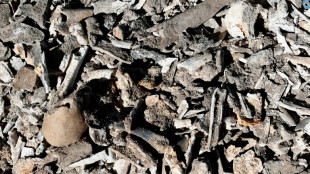 Mexican mayor arrested in probe of alleged drug cartel ranch: govt source
Mexican mayor arrested in probe of alleged drug cartel ranch: govt source
-
Seven Iranians among eight arrested in UK counterterrorism probes
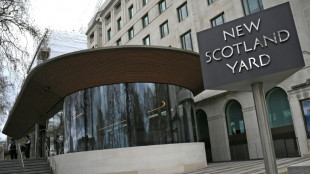

Move over, Jupiter: France's parliament takes centre stage
By design, France is usually governed by a president vested with extraordinary powers. But after Sunday's election, Emmanuel Macron finds himself at the mercy of a newly influential parliament.
It isn't meant to be this way: the 1958 constitution designed by the father of the modern nation, Charles de Gaulle, reduced the power of MPs, with subsequent changes amplifying this shift.
"The fifth republic was made for decisiveness," Frederic Fogacci, a historian and lecturer at Sciences Po university in Paris, recalling the origins of the current republic in the tumultuous post-war years.
For five years, Macron ruled as intended -- a leader with a strong majority that enabled him to push through changes, with only street demonstrations and the upper house Senate serving as resistance.
He once theorised that the French had a repressed longing for a king-like figure and he even namechecked the Roman god of gods, Jupiter, as inspiration -- earning him his nickname.
"Jupiter is over," political scientist Pascal Perrineau told the Parisien newspaper on Monday as the country digested the weekend's stunning results.
Only two months after being re-elected for a second term, Macron's allies are 45 seats short of a majority.
- Precedents -
Other presidents have had to contend with an opposition-dominated parliament, most recently right-winger Jacques Chirac, who served alongside a Socialist prime minister Lionel Jospin from 1997-2002.
Socialist President Francois Mitterrand also struggled through with a minority government from 1988-1991.
Even de Gaulle had slim majorities as president in the 1960s.
"He always had prime ministers who had to negotiate," Fogacci added.
But these rare periods when the president had his hands tied were meant to have been consigned to history by another constitutional change.
From 2002, the parliamentary elections were moved to just after the presidential ones, with the idea being that voters would hand the newly elected head of state a working majority afterwards.
In the 20 years since, the logic worked for Chirac, rightwinger Nicolas Sarkozy -- who was nicknamed the "hyper president" -- Socialist Francois Hollande and Macron in 2017.
- Silver lining? -
But French politics has changed rapidly and deeply since the turn of the century, with the traditional right-wing and left-wing parties disintegrating.
The newly elected parliament after Sunday's vote features three, rather than two, blocs: a hard-left alliance under Jean-Luc Melenchon, Macron's centrists and the far-right under Marine Le Pen.
Short of the required 289 seats for a majority, Macron's government will now need to either agree to a formal coalition tie-up, or negotiate each bill individually.
A smaller, fourth group of MPs -- the rump of the traditional right-wing party, the Republicans -- are likely to be crucial and are seen as the most likely allies.
The problem for Macron is that France's political culture is different to countries where coalitions are commonplace, such as Germany, said Jean-Daniel Levy from the Harris Interactive polling group.
"We have a culture based on conflict rather than finding agreements for the common good," he told AFP. "It would be rather surprising if this changed in the new parliament."
Jean Garrigues, a political historian, sees neither Melenchon, nor Le Pen as likely to compromise as heads of "two radical parties which do not have a culture of government, or negotiation".
But he sees a possible silver lining.
Turnout for parliamentary elections has been falling for 20 years and hit a near-record low on Sunday because many voters view the national assembly as a simple rubber-stamp forum.
"The only positive aspect could be a renewal of parliamentary life which could serve to re-legitimise parliament in the eyes of the electorate," Garrigues told AFP.
And the idea of re-electing Macron, then depriving him of a majority, was simply the continuation of a long-term trend.
Despite his parliamentary woes, the 44-year-old head of state retains sweeping and exclusive powers over foreign and defence policy.
"All of our history has been about balancing the principle of authority and the idea of counter-powers," he said. "Since the Revolution, it's been like that. It's a sort of French schizophrenia."
P.Martin--AMWN